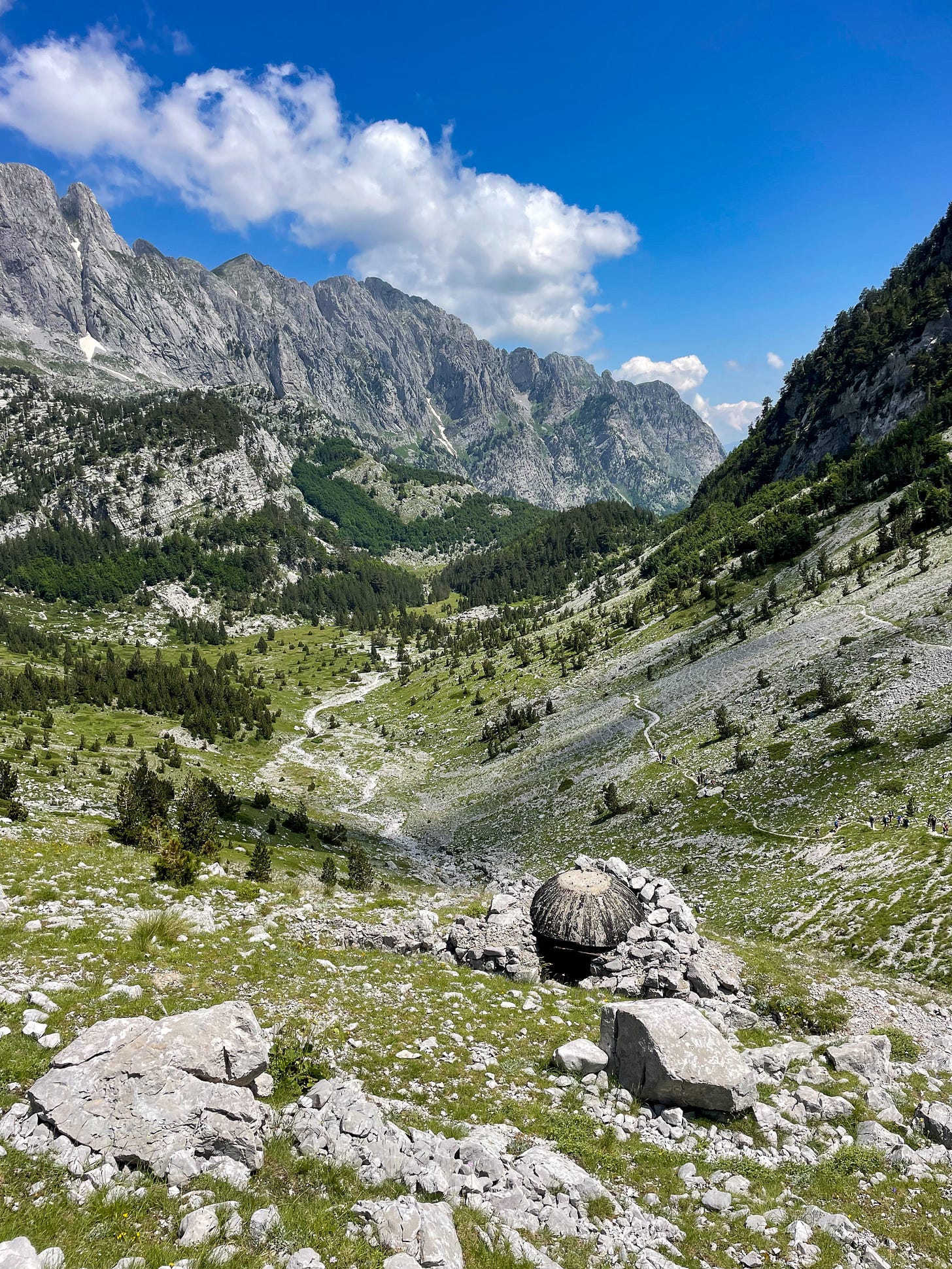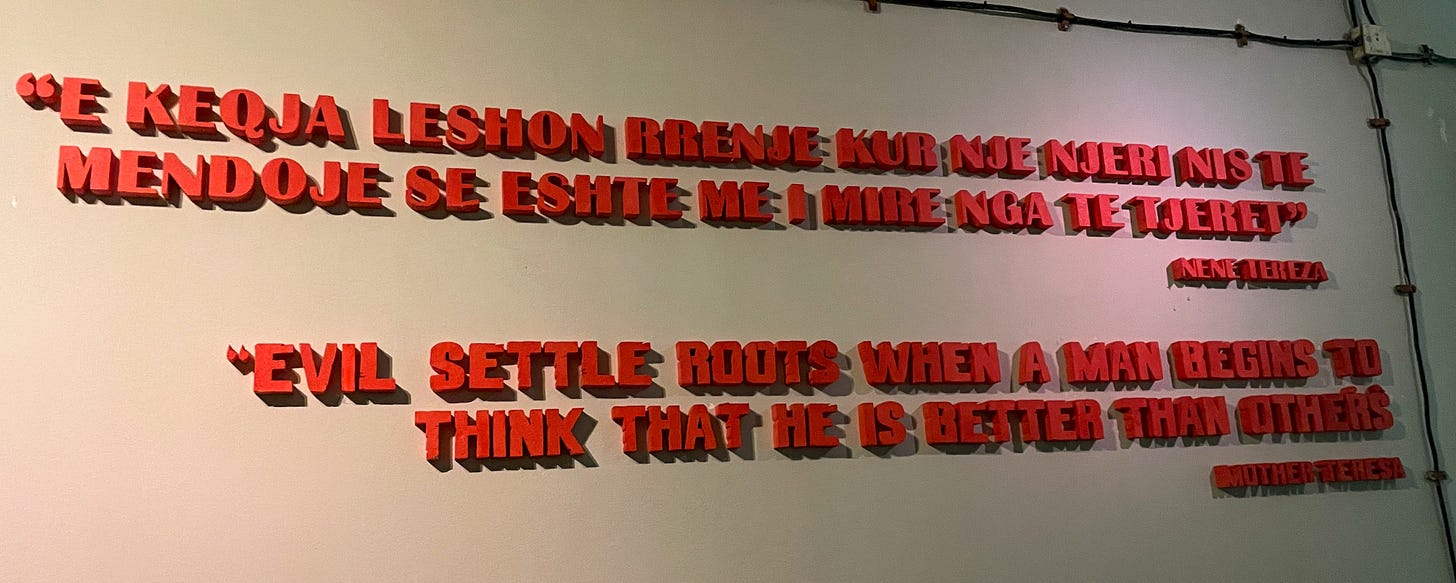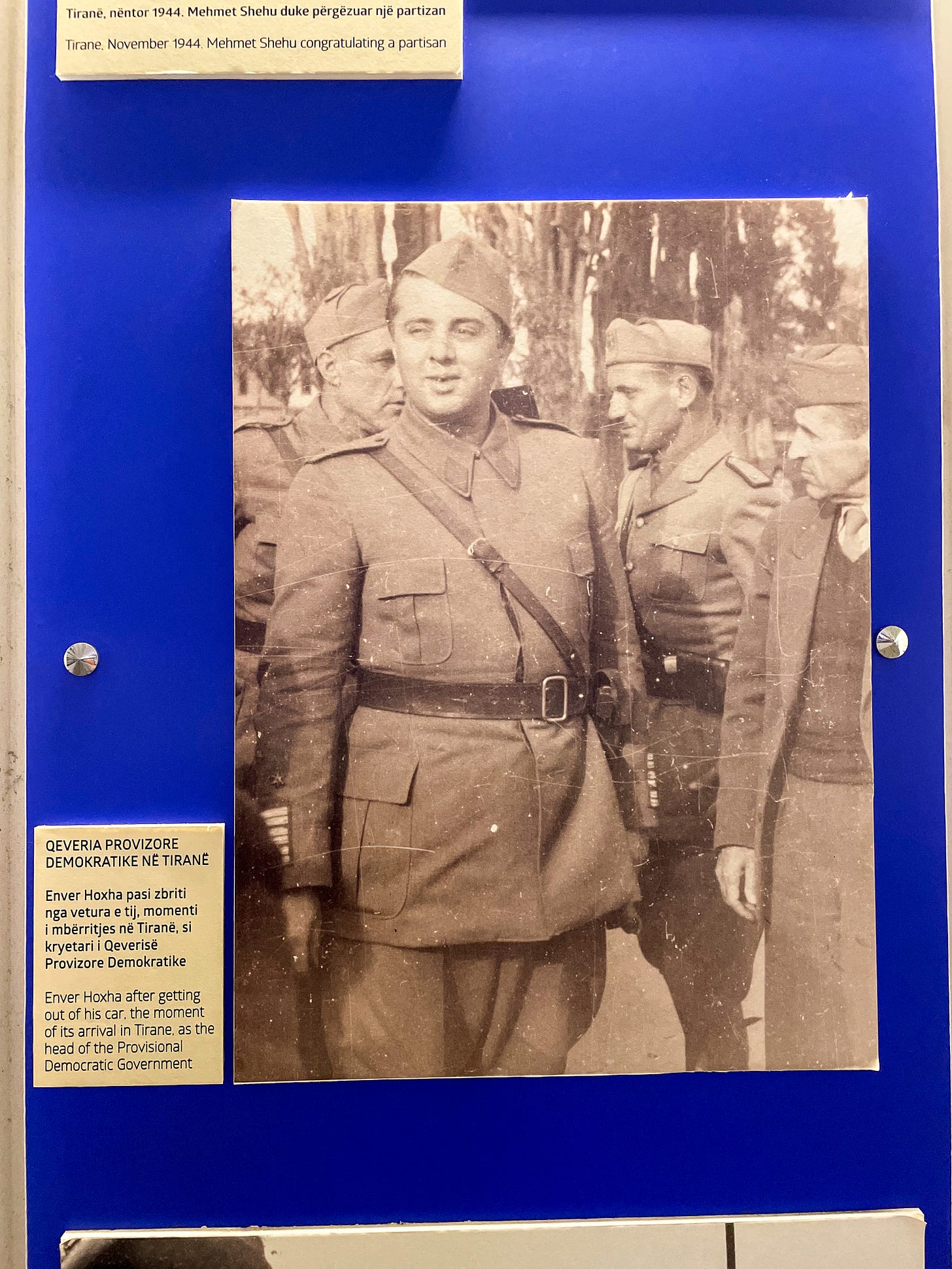Hola and welcome to Where on Planet Earth! In case you got here by accident and are not yet a subscriber, sign up below! For more visuals on our travels follow us on IG @whereonplanetearth
While hiking in the mountains between Albania and Montenegro you admire wildflowers one minute and then bump into bunkers on the next. Small concrete domes give them away, an entrance on one side leading to an opening just large enough for a few people. Now all abandoned and let to crumble, but they are bunkers, so they still stand. Remnants of a troubled past.
This “bunkerization” of Albania happened from 1975 to 1983 under the mandate of Enver Hoxha, the communist leader of the country during four horrific decades. Imagine the focus, perseverance, and sheer man and woman power it must have taken a country of a million people to build 170,000 bunkers in eight years. Just picture the paranoia that drove to that.
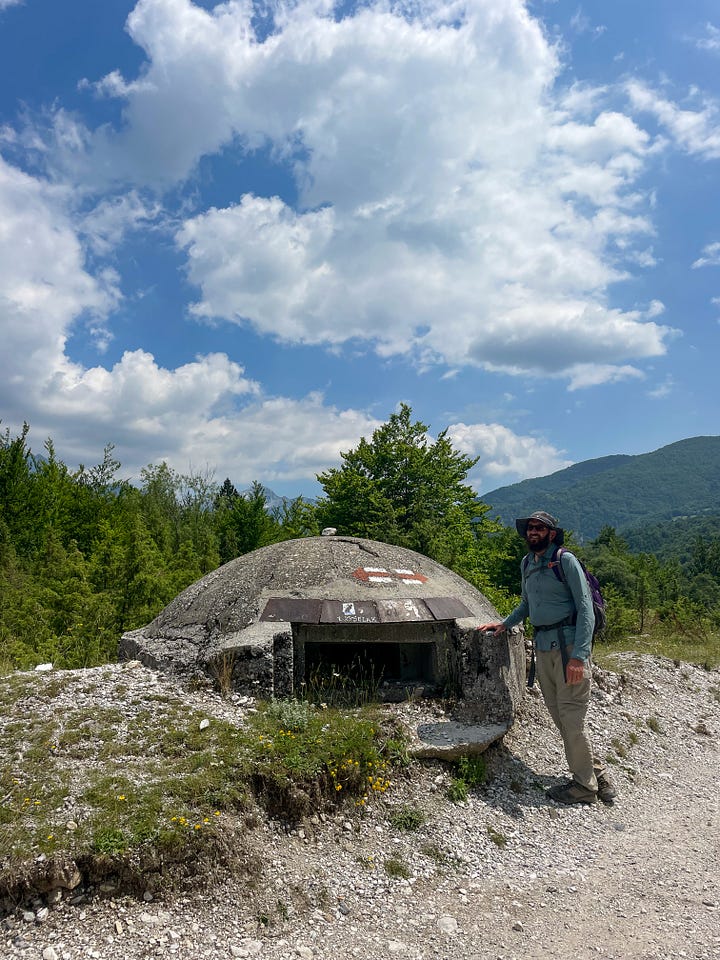
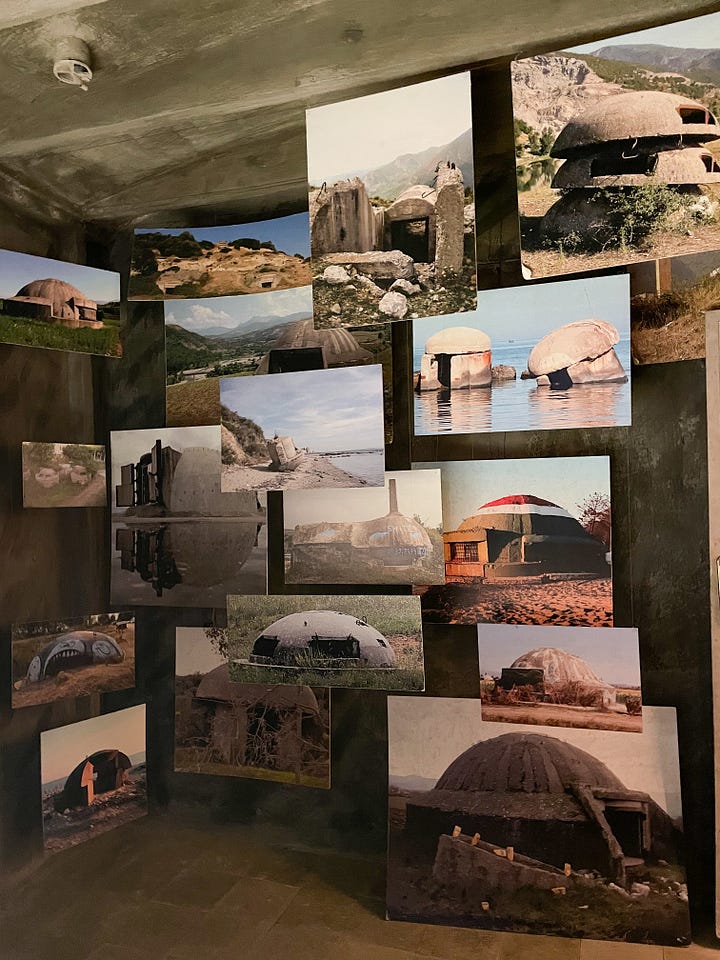
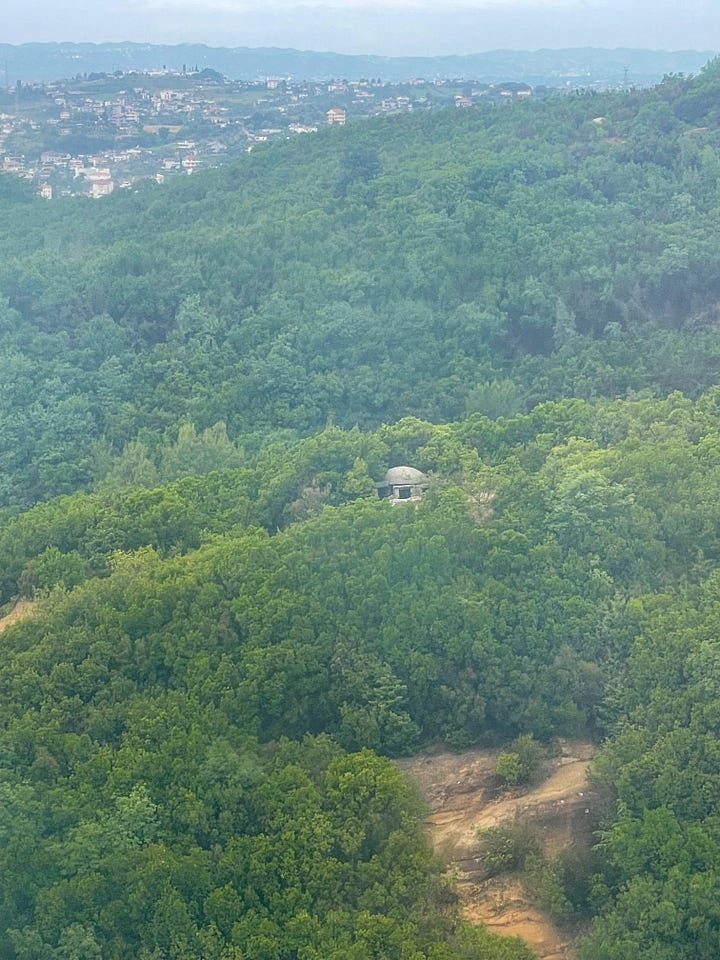
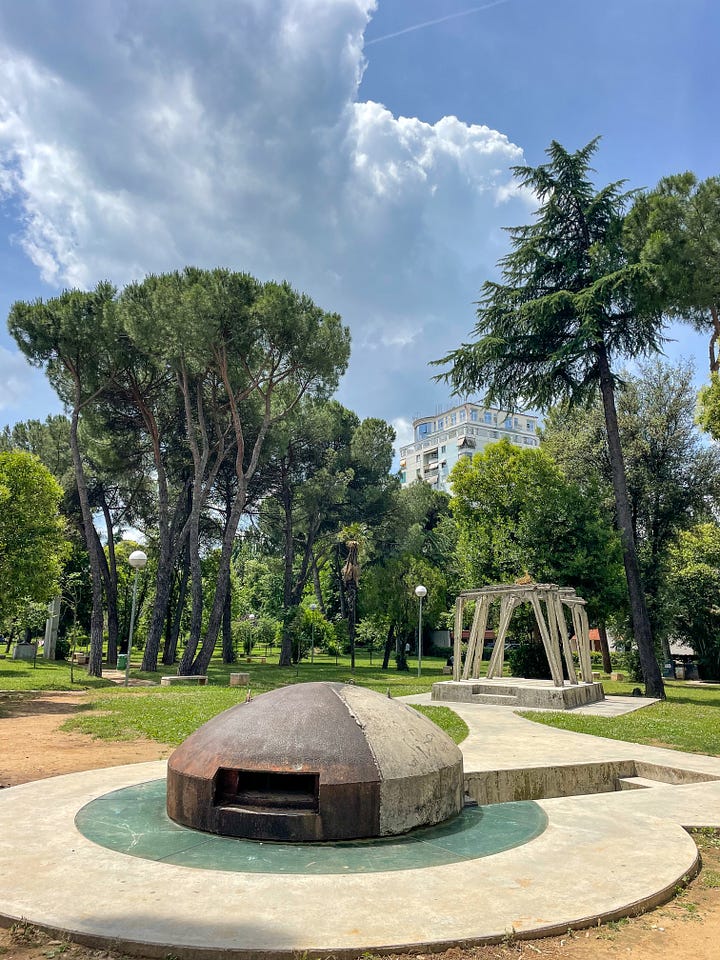
The history of communism in Albania is a unique one. Albanians tend to refer to that era simply as “the communist years”, in low tones and a frown in their faces. But to us outsiders the uniqueness of those years is appreciated in the many stages it traversed: there is the Yugoslavia satellite stage, the Soviet Union one, followed by a Chinese sphere stage, and then total and complete isolation. From one alliance to the next there was only one thing in common: Enver Hoxha’s extremism and desire for power. No country or leader was “communist enough” for Hoxha.
Hoxha came to power in 1944 and remained as Albania’s authoritarian leader until his death in 1985. Interestingly, in 1940, just a few years before his rise to power, Albania was the only European country without a communist party. But then they were invaded by Fascists, and then the Nazis, and not surprisingly communism won (you find a bit more about this history in this previous post).
Hoxha made and broke alliances with the entire world’s communism sphere, and became increasingly paranoid a nuclear war would be waged against his country. Today Albanians resent Hoxha and see the full four decades of his reign as the most terrible years for the country and its people. But, if pressed, they will tell you that the “worst of the worst” years were the last ones, when the country was fully and completely isolated from the world. Without Chinese or Soviet aid the country began to experience shortages, and living standards began to collapse. Albania became the “North Korea of Europe”.
But, the worst thing of all, was the violence and repression.
Our tour guide in Tirana was born in 1972 so he lived through two of the worst decades of the communism regime. He was 12 when he saw a hanged man, executed for treason. He was still a boy when he heard about two other boys being shot while trying to escape. He was a young man when he saw his father hiding under covers while listening to a radio station of a neighboring country, an American Albanian talking on the other end. He was 15 years old when he got into a car for the first time.
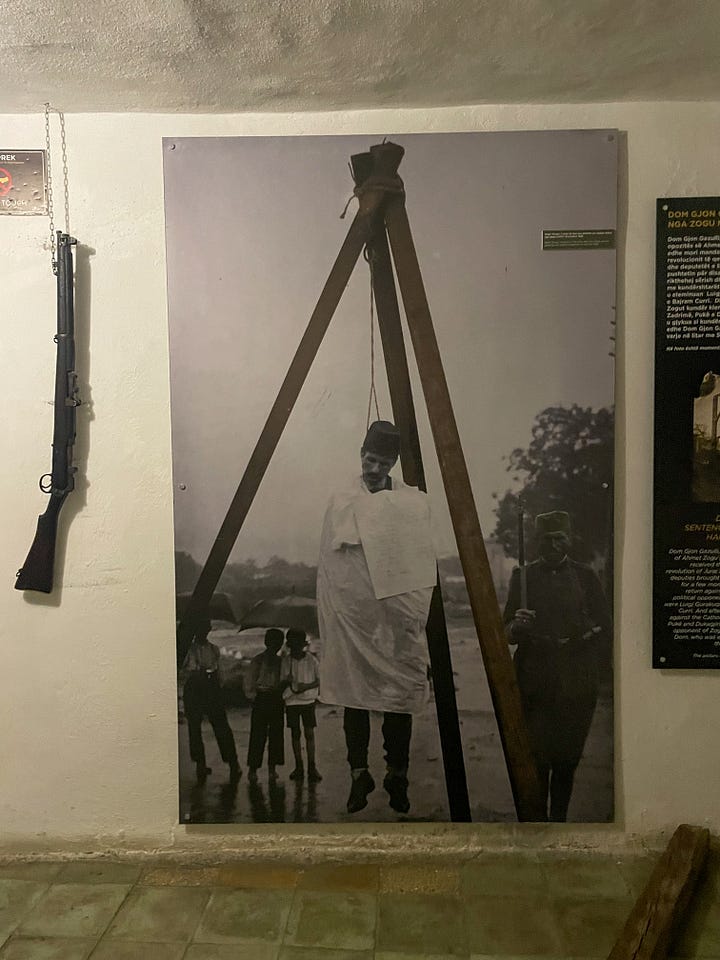
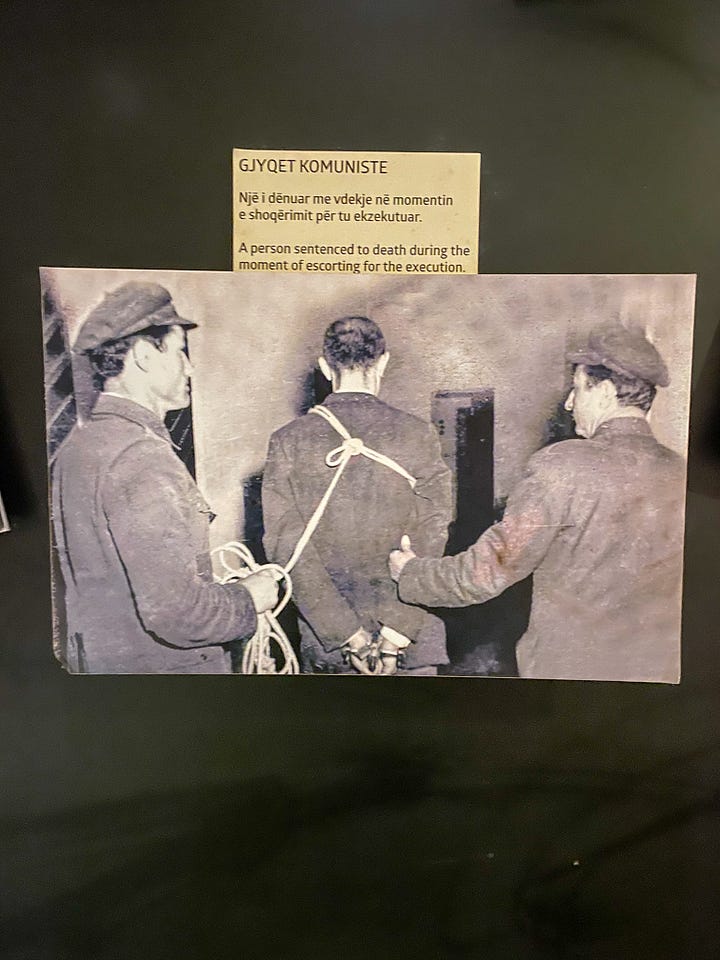
The Albanian border was secured with an electrical barrier, called KLONI, which if crossed would alert the nearest border post. Anyone trying to flee could be executed on the spot and accused of treason against the homeland, their families would suffer the consequences of their actions for decades afterwards. The dogs used on the borders were German Shepards, so in Albania that breed is simply called Border dogs.

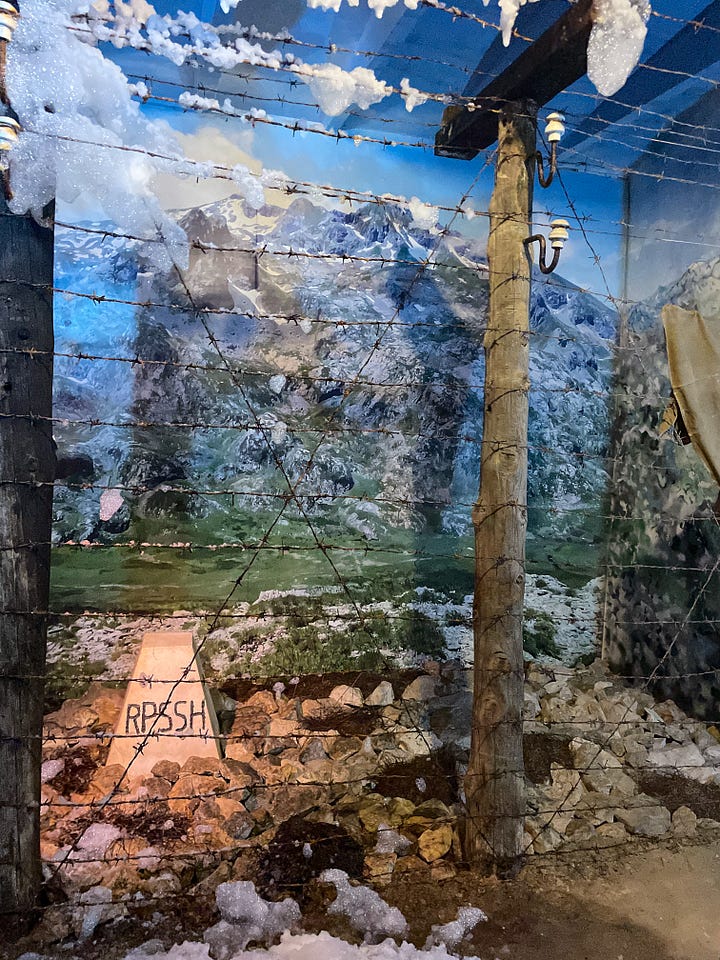
“We were brainwashed”, our tour guide shared, “I wouldn’t have even thought about saying anything bad about Hoxha or even thinking about him in a bad light, it just wasn’t part of the narrative and believes of people”
Albanians lived in a constant state of fear and paranoia as any neighbor could rat you out as an “enemy of the party” and then you could just end up in prison, or even be executed and your family labeled as traitors forever. Hoxha published more than 60 books, and everyone in Albania had these books in their homes as well as a picture of Hoxha. Not having them was a sign of dissent.
“Even as kids we were trained to monitor each other”, he continued, “We felt special if we were chosen to be the ones watching out for signs of dissent”
During these decades Albanians were part of massive trainings simulating large-scale attacks. A (harmless) gas would be released into the air, everyone would have gas masks on, and run into bunkers.
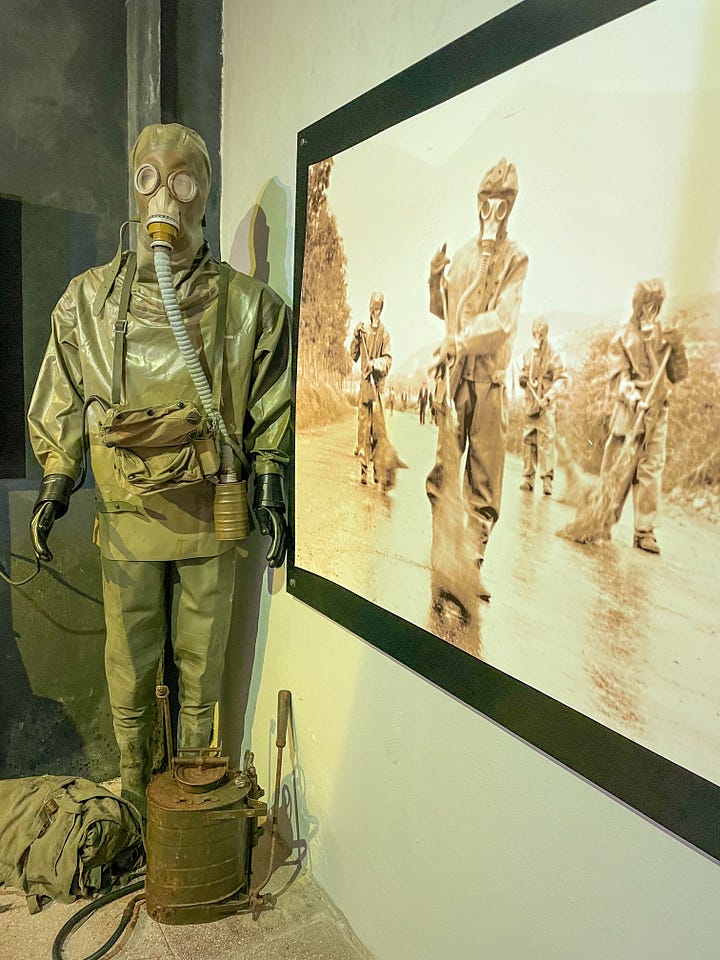
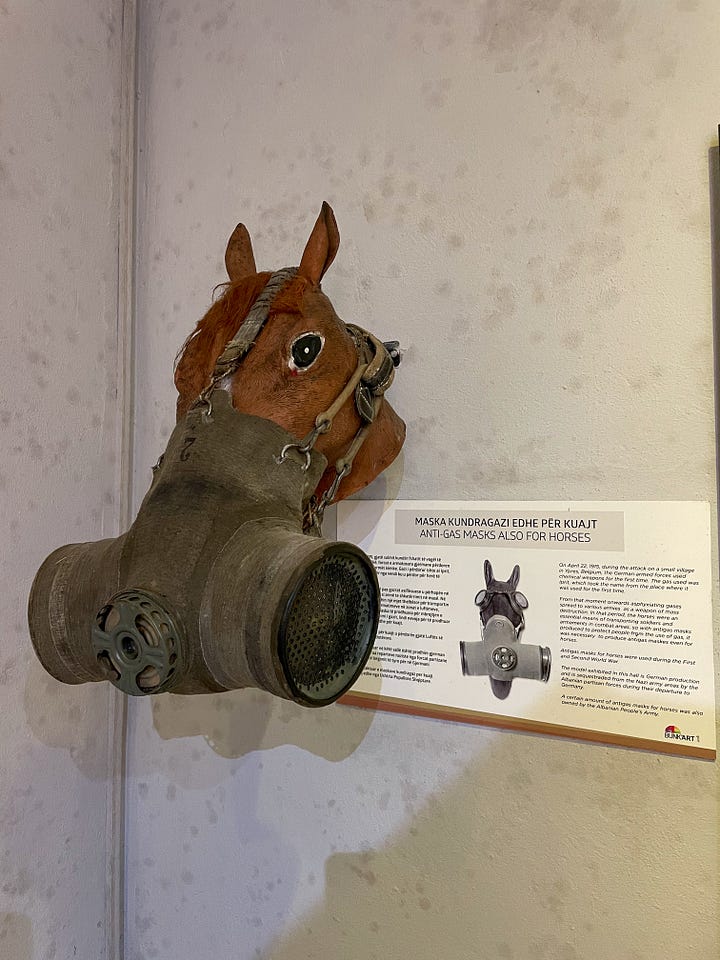
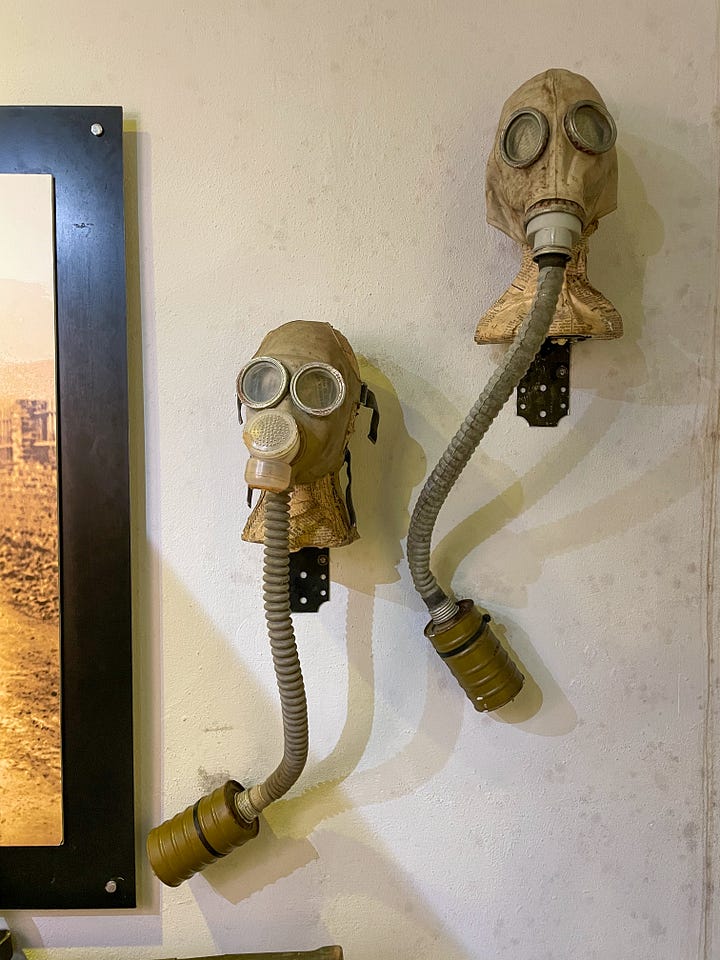
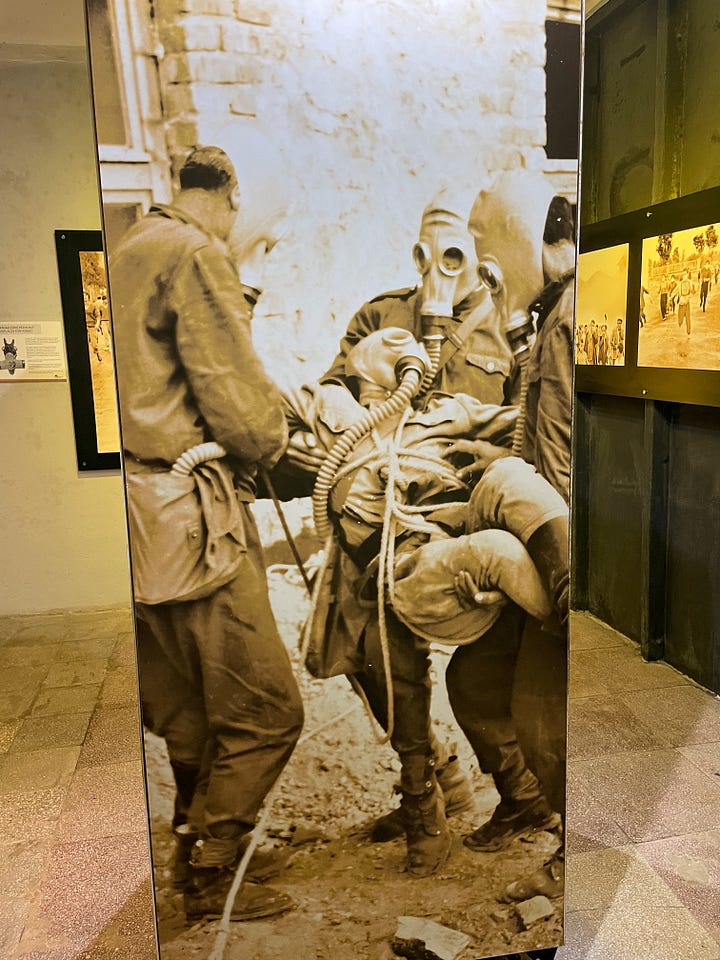
I could go on and on about the the prison camps, religious repression, torture methods, and public executions carried out by Hoxha’s government, but because things are never black or white, it’s also important to mention that there were some positive impacts to its regime. The population literacy went from 10% to 90%, and the participation of women in all aspects of politics and life increased dramatically. Population grew exponentially and life expectancy went from 38 years to 72 years.
None of this negates everything else that happened or makes it “okay”, but it’s important to understand the full picture. Nothing is ever white or black. The same can be said of dozens of authoritarian leaders around the globe, there is almost always something they did “right”, and even to this day people use those things to justify even the most disgusting dictators. I’d never justify them, no matter how much they “improved the economy” or how many “highways they built”, but negating the positive impacts their rule had (if any) makes it easier for people to justify it and continue the rhetoric of the “good old days”. I don’t think this is something that anyone here believes of Hoxha, but I have heard it of Chile’s Pinochet, Spain’s Franco, Cuba’s Fidel, and many others. But, anyways, I digressed…
While walking through the narrow and eerie alleys of a giant bunker now turned museum on the outskirts of Tirana, I kept thinking that it must have been scary to live during that time, and then I remembered that I was born before communism fell in Albania. During some of the worst years there I was having a pretty idyllic childhood in a prosperous Venezuela, open to the world, wild and beautiful, oil rich as it ever was. And then a populist-drunk-on-power disguised as a “communist” came for us as well.
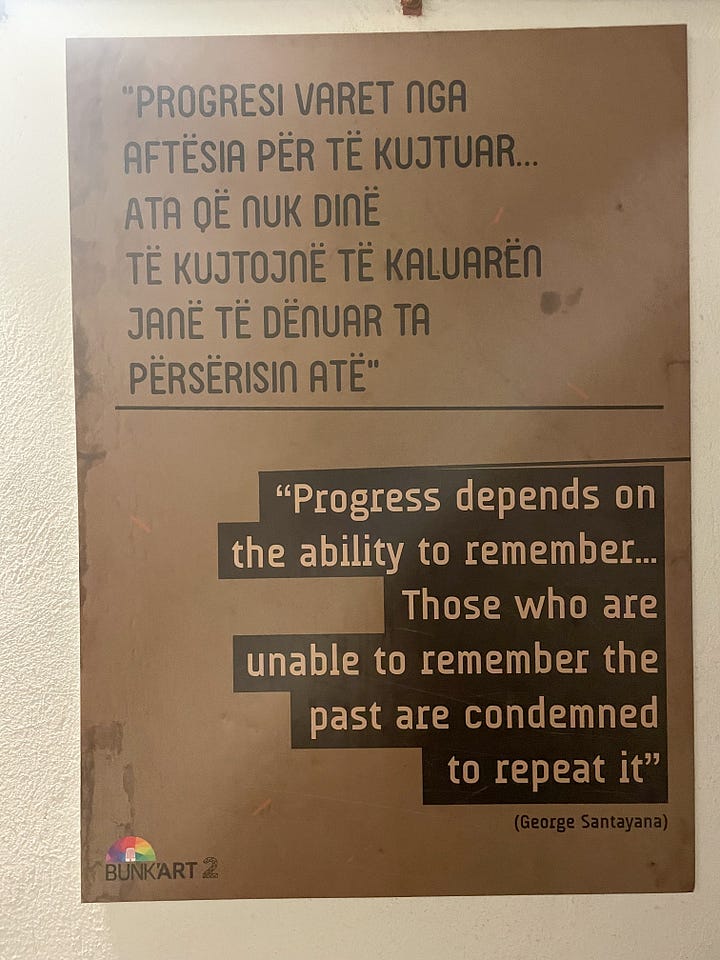
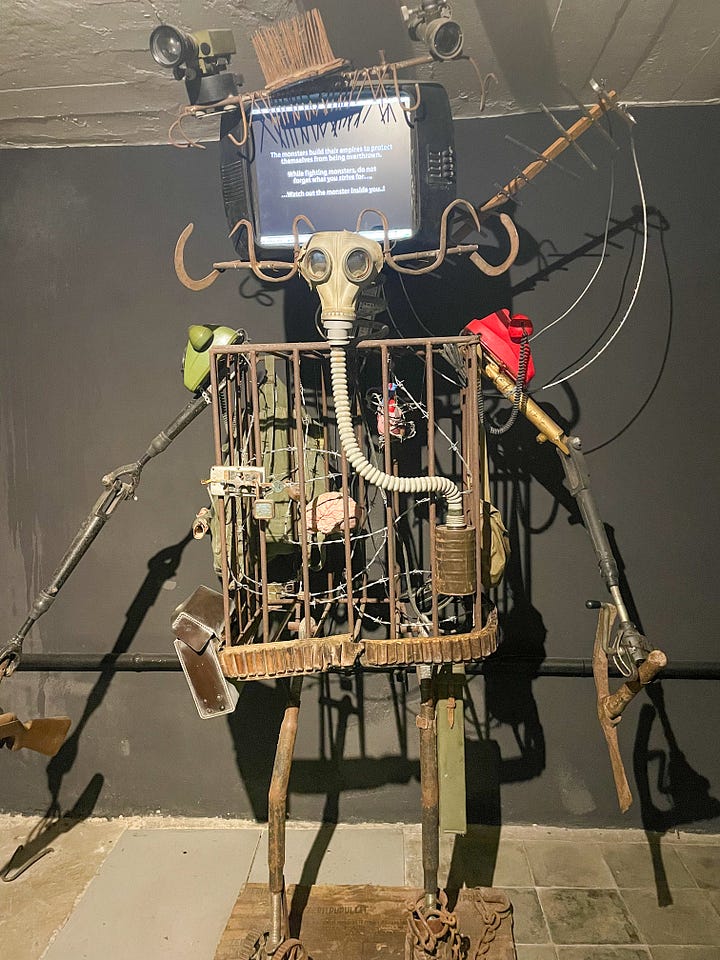
Where are we now?
Going forward I will start adding a small summary of where we are with each post! We have been in Kosovo for almost a week now, probably the most pro-American country I have ever been to, and I am looking forward to writing about this interesting place! Before arriving to Kosovo we hiked in the Accursed Mountains of Albania, Kosovo, and Montenegro for 9 days, and hands down it has been one of my favorite backpacking experiences. If you are into hiking, I highly highly recommend the trek. I am still thinking about whether to write about it or not, let me know if you are interested!


